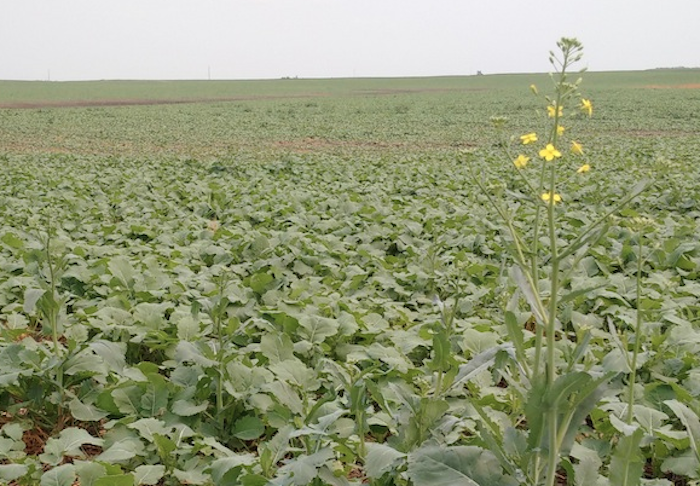It's seldom that we write about no-till and politics, but there’s a situation in Canada right now where international politics is spelling big trouble for the country’s canola growers. And with the majority of this highly popular and profitable crop in western Canada being no-tilled, it’s definitely affecting the bank accounts of growers.
The concern is that the country’s largest canola customer, China, banned Canadian imports earlier this year. As reported in the Wall Street Journal, the situation had nothing to do with the quality of the canola or the price, but instead Canadian canola sales are involved in a diplomatic flap over last December’s arrest of a Chinese executive.
Canadian authorities link the canola ban to the arrest of Meng Wanzhou, the chief financial officer of Huawei Technologies, which is the world’s largest supplier of telecom equipment. The U.S. government has requested her extradition from Canada for the company’s alleged violation of U.S. sanctions against Iran and security and spying concerns over its ties to the Chinese government.
Shipments Stopped
China halted Canadian canola shipments in March, indicating they had found harmful organisms in canola imports. However, Canadian regulators found no evidence of contamination and have linked the ban to the December arrest.
In China, the country's foreign ministry defended the suspension of Canadian canola import licenses as legitimate and reasonable steps to protect Chinese consumers and agricultural security. This is similar to last year when U.S. soybean growers lost their biggest foreign buyer for several months when China stopped shipments during heated trade talks between the two countries.
Huge Economic Impact
With the economic risk outlook and spring planting at hand, Canadian growers trimmed canola acres and were forced to substitute crops such as spring barley and wheat. Unfortunately, canola is among Canada’s most profitable crops and plays a key role in diversifying crop rotations for many no-tillers.
The Canadian government is projecting canola production could drop by 10% this year, reversing a decade-long trend in which Canadian canola production surged more than 60%, with as much as 40% of Canada’s $8.2 billion canola production being exported to China.
Most canola growers are located in Alberta, Saskatchewan and Manitoba where the majority of the crop is no-tilled with air seeders.
No More Summerfallow
The continued adoption of no-till and the economic benefits of canola dramatically diversified crop rotations and led to the demise of summerfallow in the 1970s in western Canada. Suddenly, rotations on western prairie farms included more than just growing wheat or barley after wheat.
While western Canadian growers trimmed canola acres this spring, they’re still sold on the extra profits to be earned with no-till regardless of what crops were seeded this spring. The sad part is the last-minute role trade policies had on their 2019 no-till cropping plans.






